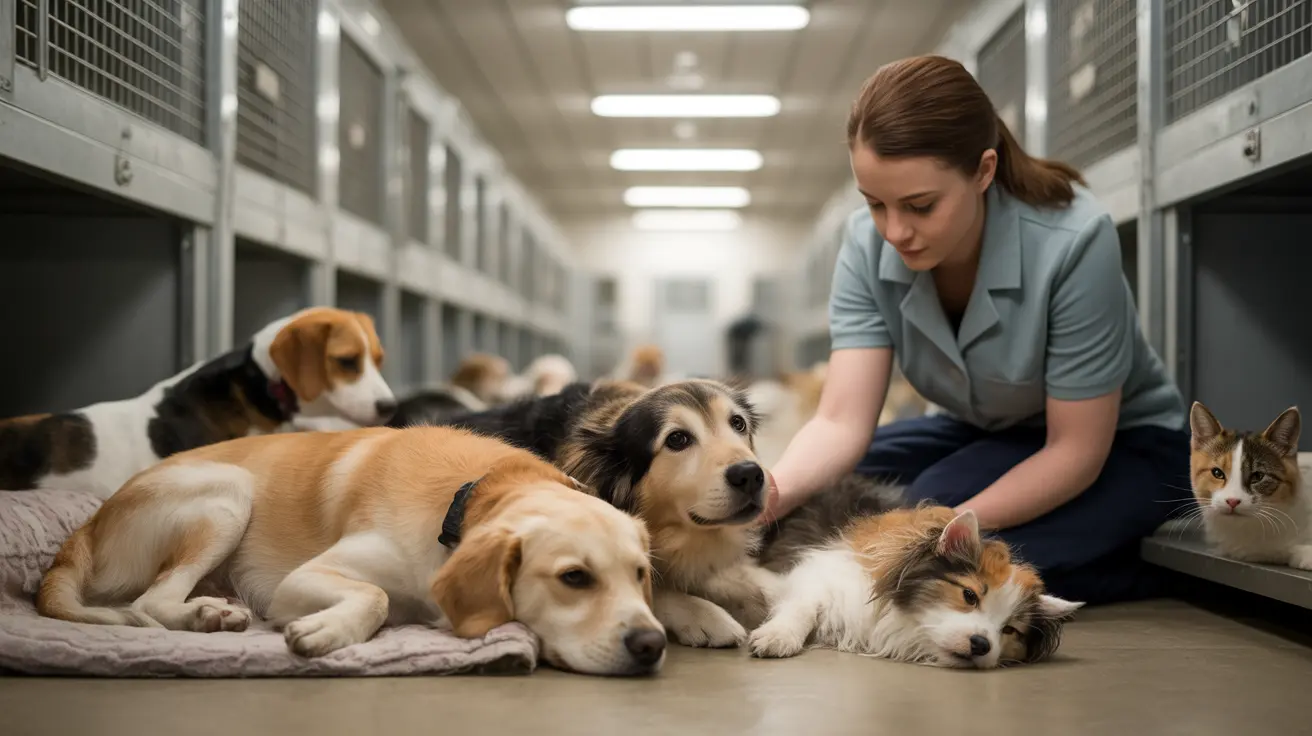Understanding Alternative Veterinary Medicine
Alternative veterinary therapy encompasses a wide range of non-conventional treatments that can complement traditional veterinary care. These approaches focus on treating the whole animal rather than just specific symptoms, often with less invasive methods than conventional medicine.
Many of these therapies have roots in traditional healing practices, particularly Traditional Chinese Veterinary Medicine (TCVM), while others have evolved from modern therapeutic techniques adapted for animals.
Popular Alternative Therapy Options for Pets
Acupuncture
Veterinary acupuncture has emerged as one of the most well-researched alternative therapies. This ancient practice involves inserting thin needles into specific points on the body to stimulate healing and pain relief. It's particularly effective for:
- Chronic pain management
- Arthritis and joint problems
- Post-surgical recovery
- Neurological conditions
- Digestive issues
Physical Rehabilitation and Therapeutic Exercise
Modern veterinary rehabilitation combines various techniques to improve mobility and reduce pain, including:
- Underwater treadmill therapy
- Laser therapy
- Therapeutic ultrasound
- Targeted exercise programs
- Manual therapy techniques
Herbal Medicine and Supplements
Natural supplements and herbal remedies can support pet health when properly administered. Common applications include:
- Joint health supplements
- Calming aids for anxiety
- Immune system support
- Digestive health products
- Skin and coat treatments
Safety and Integration with Conventional Care
While alternative therapies can offer significant benefits, they should always be pursued under professional guidance. Key considerations include:
- Consulting with a licensed veterinarian before starting any alternative treatment
- Ensuring practitioners have proper certifications and training
- Monitoring for potential interactions with conventional medications
- Maintaining open communication between all healthcare providers
Choosing the Right Alternative Therapy
Selecting appropriate alternative treatments depends on various factors:
- Your pet's specific condition and health status
- The evidence supporting different treatment options
- Cost and availability of qualified practitioners
- Your pet's temperament and tolerance for different procedures
Frequently Asked Questions
What are the most effective alternative therapies for managing my pet's pain and mobility issues?
Acupuncture and physical rehabilitation are currently the most evidence-supported therapies for pain and mobility issues. Underwater treadmill therapy, laser treatment, and therapeutic exercise have shown particular promise for arthritis, post-surgical recovery, and chronic pain conditions.
How can acupuncture benefit my pet, and is it safe when combined with conventional veterinary treatments?
Veterinary acupuncture is generally safe and can effectively manage pain, improve mobility, and support healing. When performed by a certified veterinary acupuncturist, it can safely complement conventional treatments, though always inform your primary veterinarian about any alternative therapies.
What should I know about using herbal supplements for my pet's chronic health problems?
Herbal supplements should be sourced from reputable manufacturers and used under veterinary supervision. Be aware that quality and potency can vary significantly between products, and some herbs may interact with conventional medications.
How do veterinary chiropractic and physical rehabilitation therapies work, and when are they recommended?
These therapies focus on improving joint mobility, muscle strength, and overall function. They're often recommended for injury recovery, chronic pain conditions, and maintaining mobility in aging pets. Treatment should only be performed by certified professionals.
Are there any risks or safety concerns associated with alternative veterinary therapies like homeopathy and herbal remedies?
While many alternative therapies are generally safe, risks can include interactions with conventional medications, improper dosing of supplements, and delayed treatment of serious conditions. Always work with qualified professionals and maintain open communication with your primary veterinarian.
Conclusion
Alternative veterinary therapy offers valuable options for pet health care when appropriately integrated with conventional medicine. Success depends on working with qualified practitioners, maintaining clear communication with your veterinary team, and carefully monitoring your pet's response to treatment.






